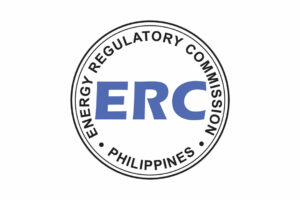
ERC pitches expanded regulatory powers to House committee
PROPOSED amendments to a law that privatized the power generation and distribution industries should also include an expansion of the industry regulator’s oversight functions, the Energy Regulatory Commission (ERC) told a House committee on Monday.
“The ERC needs changes to its structure and the authority given to it by Congress almost 25 years ago,” ERC Chairperson Monalisa C. Dimalanta told the committee, which is reviewing proposed amendments to EPIRA (the Electric Power Industry Reform Act).
The House Energy Committee was told that expanded ERC powers will help “protect consumers from the adverse effects of the changes to the industry today.”
“(This would) enable the agency to act more effectively… in promoting greater competition as the way of achieving energy affordability,” Ms. Dimalanta said.
Ms. Dimalanta proposed that the ERC be given the direct authority to fine and penalize private energy corporations failing to adhere to the mandate of “lowering (power) rates.” The ERC should also be allowed to issue permits to power generation and distribution companies.
Her proposal also included giving the ERC the ability to “undertake periodic restructuring and reorganization” to stay flexible, allowing it “to adjust accordingly when the need arises.”
The ERC also seeks to retain some portion of its income for agency improvements. “Limited fiscal autonomy (should be considered) to allow the commission to retain a portion of its income for activities such as capital outlay, training, and innovation initiatives,” Ms. Dimalanta added.
In response, a power consumer group welcomed the proposed amendments, saying that expanding ERC’s functions would empower consumers.
“The current limitations faced by regulatory bodies, such as the Energy Regulatory Commission make them inefficient,” Nic Satur, Jr., chief advocate officer of Partners for Affordable and Reliable Energy, told BusinessWorld in Facebook Messenger. “The ERC’s lack of sufficient quasi-judicial authority to effectively safeguard consumer interests (is undermined) because they are overpowered by courts.”
Mr. Satur said that courts often overturn the ERC’s rulings denying price increases by power companies.
“This leaves consumers powerless and at a loss,” he said. “Strengthening the ERC in these ways would ensure that it has the necessary tools to act decisively and protect consumers from unjust practices in the energy sector,” he added.
“Such authority would not only allow the ERC to make binding decisions in disputes between utilities and consumers but also enforce compliance with these decisions to prevent expensive electricity prices for consumers,” Mr. Satur said. — Kenneth Christiane L. Basilio



